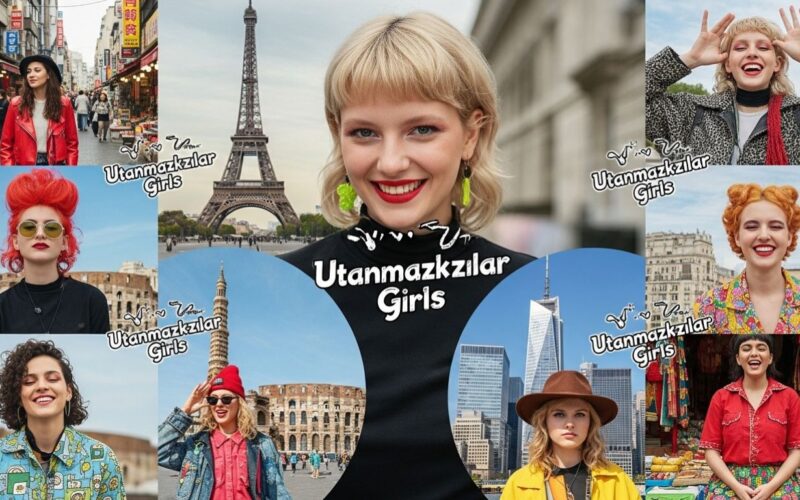In a world brimming with colorful phrases and expressions, some terms capture the essence of cultural identity more than others. One such word is “utanmazkzılar.” This term isn’t just a collection of letters; it embodies a whole attitude and social commentary that resonates deeply within certain communities. As we peel back the layers of its meaning, you’ll discover how it reflects societal values, challenges norms, and creates vibrant dialogues across different spheres. Join us on this exploration to understand not only what “utanmazkzılar” means but also why it matters in today’s ever-evolving landscape.
The Origins and Evolution of the Term
The term “Utanmazkzılar” has deep-rooted connections to cultural narratives. Its origins can be traced back to a blend of historical events and societal shifts that shaped its meaning.
Initially, it was used in specific communities to describe individuals who displayed audacity in their actions. These people were often seen as brave or unapologetic, challenging traditional norms without hesitation.
As time progressed, the term began to evolve. It took on new connotations, reflecting changing attitudes towards morality and social behavior. The shift mirrored broader cultural transformations where expressions of individuality gained importance.
Today, “Utanmazkzılar” is not only a label but also an emblem of defiance against conventional standards. Its journey reveals how language adapts alongside society’s evolving values while retaining ties to its origins.
Cultural Significance and Usage in Society
Utanmazkzılar carries a weight that extends far beyond its literal translation. It encapsulates societal attitudes toward shame, behavior, and identity in contemporary culture.
In various contexts, the term can be both derogatory and affirming. People may use it to criticize those who disregard social norms or expectations. Conversely, some reclaim it as a badge of honor, celebrating authenticity over conformity.
The usage often reflects broader themes in society—like freedom of expression versus traditional values. This duality demonstrates how language evolves with cultural shifts.
Social media plays a pivotal role in shaping perceptions around Utanmazkzılar today. Memes and viral content have transformed the term from obscure jargon into a widely recognized phrase among younger generations.
As conversations around morality change rapidly, so does this term’s relevance. Its fluid nature reveals much about current cultural dynamics involving acceptance and rejection within communities.
Controversies Surrounding the Term
The term “Utanmazkzılar” has sparked heated debates across various platforms. Critics argue that it encapsulates negative stereotypes, promoting a narrow view of individuals labeled as such.
Supporters defend the usage, claiming it highlights societal issues and provokes necessary conversations about personal choices and morality. This duality creates friction among different cultural groups.
Some view the term as derogatory, suggesting it perpetuates stigma against certain behaviors or lifestyles. Others embrace its provocative nature, seeing it as a badge of honor for those who defy social norms.
Discussions often escalate on social media, where opinions clash fervently. The rapid spread of information can lead to misunderstandings about its meaning and implications.
As language evolves, so does public perception surrounding terms like “Utanmazkzılar.” It remains crucial to navigate these discussions carefully while recognizing their impact on real lives.
Impact on Pop Culture and Media
The term Utanmazkzılar has woven itself into the fabric of modern pop culture, transcending its original meaning. From social media trends to viral memes, it often serves as a badge of honor for those who embrace unabashed authenticity.
Television shows and movies have also picked up on this phenomenon. Characters embodying the spirit of Utanmazkzılar resonate with audiences craving genuine representation. They challenge societal norms and inspire conversations about self-acceptance.
Music is another arena where this term shines. Artists use their platforms to express unapologetic individuality, reflecting the very essence of being an Utanmazkzılar in lyrics and performances.
As discussions around identity gain momentum, brands are increasingly tapping into this cultural shift. Campaigns celebrating fearlessness align perfectly with the ethos behind Utanmazkzılar, making it a buzzword that won’t fade anytime soon.
Other Similar Terms in Different Cultures
Across cultures, language reflects societal norms and values. Terms similar to “utanmazkzılar” exist globally, highlighting attitudes towards shame and boldness.
In Japan, the word “shameless” translates as “haji ga nai.” This phrase captures a specific cultural context where individuals may act without concern for societal judgment.
Similarly, in Brazil, “sem vergonha” conveys a carefree attitude toward public perception. It’s often used humorously but can also imply a lack of decorum.
In contrast, the Spanish term “descarado” refers to someone blatantly audacious or shameless. It carries both admiration and criticism depending on the situation.
Each of these terms sheds light on how different societies approach behavior that challenges traditional boundaries. They reveal varying degrees of acceptance regarding what it means to be uninhibited in one’s actions or beliefs.
Conclusion: Understanding the Complexities of Language and Culture Through
Language is a mirror reflecting our cultural values, beliefs, and the nuances of human interaction. The term “Utanmazkzılar” embodies this concept perfectly. It highlights how language can evolve alongside society, adapting to shifts in morality and social attitudes.
Understanding such terms requires us to explore their origins and contexts deeply. As we’ve seen with Utanmazkzılar, it isn’t just a word; it’s an expression of identity and societal norms. Its usage across various platforms illustrates its significance in contemporary dialogues around acceptance and shame.
The controversies that arise from discussing terms like Utanmazkzılar remind us that language is fluid. It provokes thought, challenges perceptions, and sometimes ignites debate about what we value as individuals or communities.
Pop culture plays a vital role in shaping our understanding of these concepts. Media representations can either reinforce stereotypes or challenge them by presenting complex narratives surrounding people labeled with such terms.
Exploring similar expressions in different cultures broadens our perspective on human experiences globally. Each term carries unique connotations shaped by its linguistic heritage and societal context.
Grappling with words like Utanmazkzılar opens doors to conversations about ethics, identity, and belonging within any culture’s fabric. Language not only serves as a means of communication but also acts as a catalyst for deeper understanding among diverse groups navigating through life’s complexities together.




